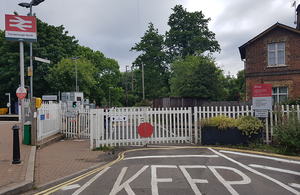Adrian Benedict Sacco, 55 and originally from Malta, has been disqualified after running an umbrella payroll services company with links to the Isle of Man, potentially costing the public purse millions in unpaid income tax, National Insurance Contributions and Corporation Tax.
Sacco was sole director of Best Employment Services (BES), which was incorporated in March 2015 and provided umbrella payroll services to senior or specialist high-earning contractors across various sectors, such as engineering, IT or HR, who were often working on short-term projects or fixed contracts.
Its website advised contractors that, based on an income of £100,000, they could retain £90,000, compared to £75,000 if they declared earnings through a limited company, or £55,000 if they were taxed as a standard employee through Pay As You Earn (PAYE). Contractors paid a fee to BES for providing this service.
BES received payment from clients for its employees’ work as a normal supplier. However, instead of then paying its employees their wages with the appropriate tax deductions, it paid them a small amount through PAYE, and the remainder was paid out to them as a loan. Neither PAYE nor National Insurance was deducted and paid for the loan portion of employees remuneration as it should have been.
BES outsourced its administrative functions to a number of connected companies in the Isle of Man. BES’ profits from its fees were split between these companies on a monthly basis, meaning BES reduced its profits, and reduced its corporation tax liability. Sacco was also a co-owner of one of these companies, and received an income from it. The Insolvency Service investigation found a total of nearly £25 million paid to these companies by BES.
Some of the outstanding loans due from BES’ employees were transferred to Retentia Services Limited, a company registered in Anguilla, with a £20 million loan book being exchanged by BES for an indemnity agreement. This arrangement ensured BES retained fewer financial assets, and Sacco knew there were no claims for which the indemnity would ever have been liable. Retentia was dissolved before the loans fell due meaning the loans made by BES to its employees were never recovered, nor did BES ever pay the correct tax on its employees’ earnings.
Following the liquidation of BES in March 2019 after auditors flagged concerns regarding the 2017 accounts and which led to a claim by HMRC for £2.7m in relation to unpaid corporation tax, the High Court also approved the liquidators winding-up order for the company in Anguilla, and efforts are being made to recover funds.
At the point of liquidation, HMRC has outstanding claims of £4.1 million comprising corporation tax, PAYE, VAT and interest although this claim is expected to increase.
Adrian Sacco, who has previously been a director of several other payroll companies which have been dissolved or liquidated over this period, was aware that the business model was open to challenge from HMRC. In the subsequent Insolvency Service investigation, he confirmed that he had taken legal advice but not in specific relation to BES’ business model.
The Secretary of State for Business, Energy and Industrial Strategy accepted a disqualification undertaking from Adrian Sacco, after he admitted failing in his fiduciary duty as a director, and breaching the Companies Act 2006 by failing to act with reasonable care, skill and diligence by employing such a business model. His disqualification is effective from 24 May 2022 and lasts for eight years.
The disqualification undertaking prevents him from directly, or indirectly, becoming involved in the promotion, formation or management of a company, without the permission of the court.
Mark Bruce, Chief Investigator at the Insolvency Service said:
Despite his awareness of the risks, Adrian Sacco has failed in his duties to his employees whilst wilfully abusing the tax system for his own personal benefit. He has shown complete contempt for taxpayers and to those his company was supposed to be providing a service to.
This disqualification should serve as a warning to any other company directors who may be tempted to operate similar business models and flout their obligations that they will be investigated and punished.
Notes to editors
Adrian Benedict Sacco is originally from Malta, and his date of birth is August 1966.
Best Employment Services Limited (Company number 09473810).
A disqualification order has the effect that without specific permission of a court, a person with a disqualification cannot:
- act as a director of a company
- take part, directly or indirectly, in the promotion, formation or management of a company or limited liability partnership
- be a receiver of a company’s property
Disqualification undertakings are the administrative equivalent of a disqualification order but do not involve court proceedings.
Persons subject to a disqualification order are bound by a range of other restrictions
Many umbrella companies are compliant with the tax rules but some use tax avoidance schemes. If you think the umbrella company you work for, or another employer, is not complying with the tax rules, you can report it to HMRC.
It is generally agreed that an umbrella company is a company that employs a temporary worker (an agency worker or contractor), often on behalf of an employment agency. The agency will then provide the services of the worker to their clients. Umbrella companies do not find work for the workers they employ. They can work differently but most umbrella companies employ workers using an employment contract which will set out your terms and conditions. This means the company must comply with employment law.
Further information about umbrella companies and tax avoidance is available through HMRC’s ‘Tax avoidance – don’t get caught out’ campaign, which helps contractors who are self-employed or employed through an agency or umbrella company to understand their pay arrangements, so they do not get an unexpected tax bill.
Information about the work of the Insolvency Service, and how to complain about financial misconduct.
You can also follow the Insolvency Service on:

